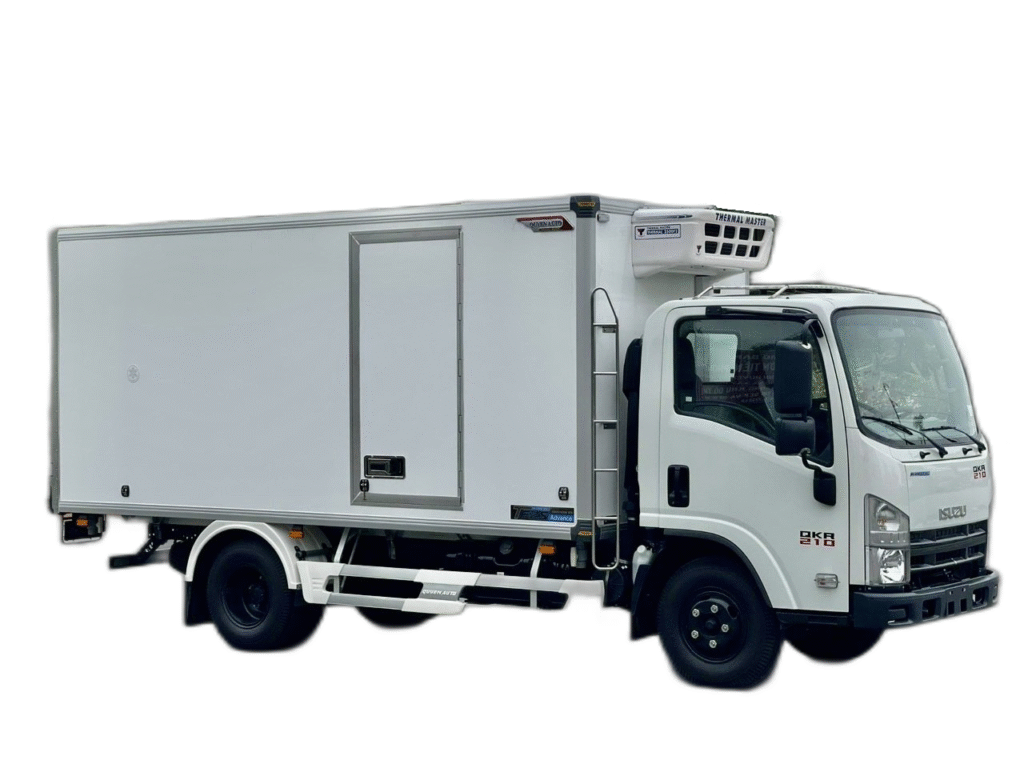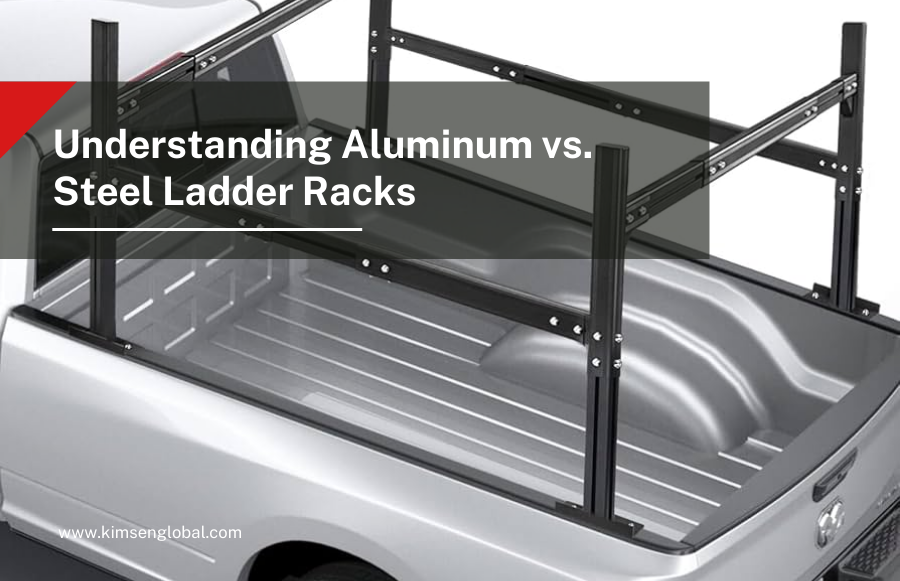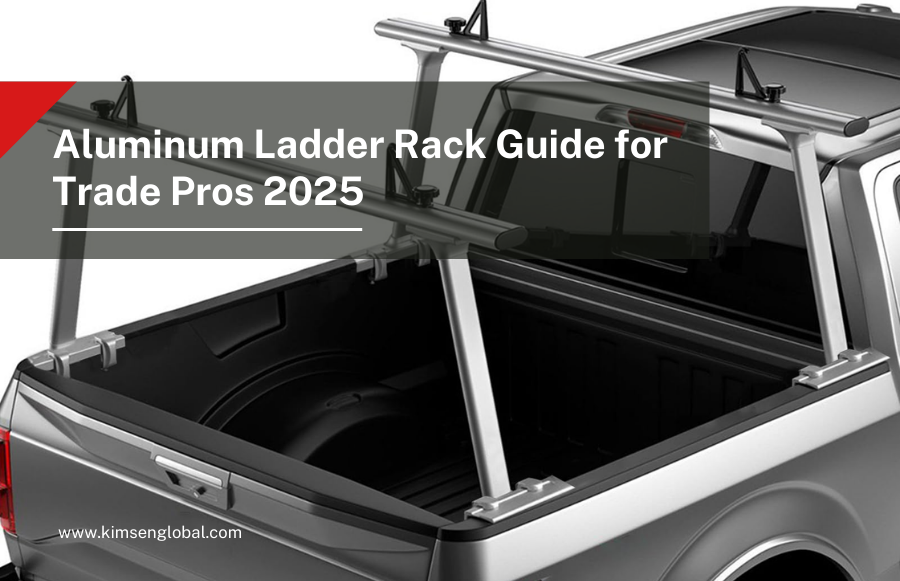Aluminum truck bodies have quickly become the preferred choice for fleets worldwide. In 2025, as fuel costs remain high and payload demands continue to grow, companies are rethinking traditional steel builds. The lighter weight of aluminum means better fuel efficiency, greater payload capacity, and lower maintenance costs. US and EU buyers looking to Vietnam for supply will find that manufacturers like KIMSEN Industrial Corporation are leading the way with precision-engineered, high-strength solutions. Simply put, aluminum truck bodies aren’t just a trend—they are a strategic business move.

Why Aluminum Truck Bodies are Transforming Fleets
Steel has long dominated the trucking industry, but it comes with obvious drawbacks: higher weight, corrosion issues, and reduced efficiency. By contrast, aluminum offers several decisive advantages. It is roughly one-third the weight of steel while still providing excellent strength-to-weight ratios. In April 2025, data from the US Department of Energy confirmed that weight reduction directly improves vehicle fuel economy, often by 10–15% for every 10% weight cut. For fleets, that translates into millions in savings annually.
Corrosion Resistance and Durability
Aluminum is naturally resistant to rust, unlike steel which requires coatings and frequent touch-ups. For service bodies exposed to harsh conditions, aluminum ensures a longer lifecycle with fewer repairs. Buyers can also specify alloys like 6005 and 6082—grades widely used in Vietnam extrusion plants—that combine corrosion resistance with impressive toughness.
Recycled Aluminum Truck Bodies and Sustainability
Another factor driving aluminum adoption is sustainability. More than 75% of aluminum ever produced is still in circulation today. Many recycled aluminum truck bodies are now entering fleets, offering the same performance as primary metal while lowering carbon footprints. For buyers under EU Green Deal regulations, sourcing aluminum truck bodies supports compliance and sustainability goals.
Aluminum Truck Bodies Fuel Efficiency Gains
Fuel prices remain volatile in 2025, with geopolitical shifts such as the Ukraine–Russia war and Trump’s July 2025 tariff announcement affecting global supply chains. Lightweight materials have become essential for controlling operating costs.
- A steel truck body can weigh up to 1,500 lbs more than its aluminum counterpart.
- That weight difference directly improves fuel efficiency, cutting diesel consumption by 15–25% according to fleet studies in early 2025.
- Long-haul fleets report savings of 800–1,200 gallons of fuel per truck annually when switching to aluminum.
For companies managing hundreds of vehicles, these savings quickly offset any upfront investment. Vietnamese suppliers, particularly KIMSEN Industrial Corporation, offer aluminum alloy truck bed manufacturing at competitive costs while meeting international standards.
Payload Capacity Advantages of Aluminum Truck Bodies
Reducing curb weight doesn’t just save fuel—it unlocks more payload. In practical terms, every 500–700 lbs saved can mean an extra pallet of goods or more tools on board. Fleet managers know payload is profitability, and aluminum helps maximize it without exceeding axle ratings.
Real-World Examples
- Ford’s F-150 transition to aluminum reduced weight by over 700 lbs, increasing towing capacity and improving performance.
- Construction fleets in Europe using aluminum service bodies reported payload boosts of 10–15%, allowing fewer trips to job sites.
These gains are especially valuable for logistics firms squeezed by high freight costs and stricter emissions caps in 2025.
Lifecycle Cost and Maintenance Benefits of Aluminum Truck Bodies
Although aluminum truck bodies may carry a higher upfront price, their lifecycle savings make them cost-effective. Maintenance costs drop significantly because aluminum does not rust. Owners avoid costly sandblasting, repainting, or part replacements common with steel.
Resale Value
Vehicles equipped with aluminum truck bodies often have higher resale value. Buyers know the bodies will last longer and require less repair. This is particularly important in 2025 as second-hand fleet markets are expanding rapidly due to tariff uncertainty and sourcing shifts.
Strength and Design of Aluminum Alloy Truck Beds
Some buyers still question whether aluminum can handle heavy-duty use. The answer lies in engineering. Heat-treated 6xxx alloys deliver tensile strengths above 300 MPa, rivaling mild steel while remaining lighter. Manufacturers like KIMSEN Industrial Corporation utilize advanced extrusion lines and CNC machining to achieve tight tolerances and robust designs. This makes aluminum ideal not only for light trucks but also for demanding commercial fleets.
Vietnam Supply Advantage: Aluminum Alloy Truck Body Manufacturers
Vietnam has become a preferred partner for US and EU buyers seeking cost savings without sacrificing quality. By 2025, Vietnam sources over 55% of its aluminum ingots domestically, reducing dependency on Chinese imports and avoiding tariff risks.
KIMSEN Industrial Corporation as a top aluminum truck body supplier
- 12+ years of expertise in extrusion and precision machining
- Use of advanced ERP/MES systems for transparent workflow
- Compliance with ISO quality standards recognized internationally
- Competitive costs compared to US/EU suppliers
Buyers searching for an aluminum alloy truck bed manufacturer in Vietnam will find KIMSEN positioned at the top for both reliability and innovation.
Recycled Aluminum Truck Bodies and Sustainability Benefits
Aluminum’s recyclability fits perfectly with global emission targets. In 2025, EU truck fleet operators must comply with stricter CO₂ reduction goals. Aluminum helps them meet these requirements through both weight reduction and recyclability.
Trade developments also shape procurement decisions. Trump’s 2025 tariff adjustments raised concerns for global suppliers, yet Vietnam was spared the heaviest sanctions thanks to transparency agreements. For US buyers, sourcing from Vietnam remains a cost-effective and tariff-resilient option.
Customization and Design Flexibility
Aluminum extrusions allow for highly tailored designs. Whether it’s integrated toolboxes, modular storage, or aerodynamic panels, aluminum provides versatility unmatched by steel. This is particularly valuable for companies needing specialized service vehicles, from utility fleets to parcel delivery vans.
Key Takeaways
- Aluminum truck bodies fuel efficiency improvements average 15–25%.
- Payload capacity increases by 10–15% thanks to reduced curb weight.
- Lower maintenance costs and higher resale value make aluminum bodies cost-effective.
- Recycled aluminum truck bodies support sustainability and compliance with EU regulations.
- Global trends in 2025—tariffs, fuel prices, and sustainability rules—make aluminum the smarter choice.
Conclusion
By April 2025, the case for aluminum truck bodies is clearer than ever. They deliver real gains in fuel efficiency, payload, sustainability, and lifecycle cost. For US and EU buyers under pressure from tariffs, high fuel costs, and environmental regulations, aluminum bodies provide both immediate and long-term relief. Vietnam has emerged as a vital hub, with KIMSEN Industrial Corporation standing out as a trusted partner delivering world-class extrusions and engineered truck body solutions.
If your fleet strategy for 2025 and beyond focuses on efficiency and resilience, aluminum truck bodies should be at the center. And if you’re sourcing internationally, Vietnam—and KIMSEN—should be the first name on your shortlist.
Read more: Automotive Aluminum Components Hidden in Every Car – KIMSEN Industrial Corporation








